The next morning, we woke up inside a volcano. The Neptune was encircled by shattered fragments of the ancient island of Thera. The largest of these islands was Santorini, thought by some to have been home to the city of Atlantis. The ship felt very small riding in the center of this vast broken soup bowl. The crew helped us into tenders, that, tilting and bouncing on the waves, somehow got us to the island, where we climbed onto a waiting bus for the ride of our lives. During the night, the sea had been rough, so Sherrill had doped herself on Dramamine. Lucky her.
"The driver doesn't want to die," Sherrill would have told me, if she'd been conscious. She always did.
Finally, still breathing, we reached the white and blue town at the top of the cliffs. Continuing across the top of the island, past orchards of silvery-green olive trees, we eventually saw the remains of the Minoan city of Akrotiri sprawled beneath protective canopies. Walking along ancient streets between houses and shops still being excavated, many as tall as three stories, walls decorated with frescoes visible again after four thousand years smothered in ash, we could imagine the people and families who lived here and their horror when the mountain they lived on destroyed itself.
History and fun and games: the Neptune's staff kept them alternating so no one could be bored. Daily lectures on upcoming sites, morning gymnastics, Greek dancing lessons, music and dancing most evenings, a Greek Night show with entertainment by the crew, and more. Every time I walked into the dining room with Simone and Sherrill I felt privileged. On costume night, Simone disguised herself as a ship's waiter, including red vest and black moustache.
One lesson of this trip was that civilizations come and go. Some people believe that survivors from Akrotiri reached the island of Crete to the south. Whether that's true or not, we were impressed by the partially restored palace complex at Knossos with its confusing maze of rooms. The ancient city may have lasted for two thousand years, but in the end it collapsed, probably after a series of earthquakes.
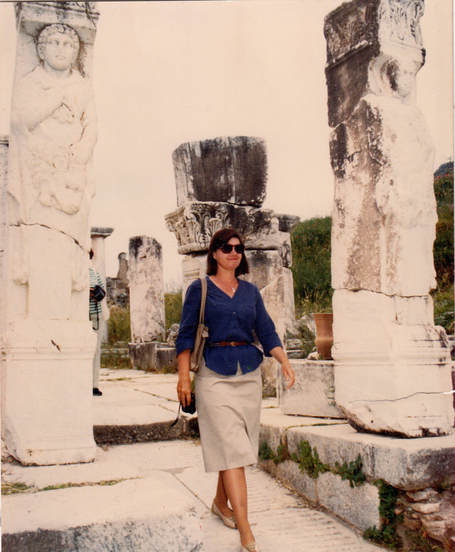 Sherrill at Delos
Sherrill at Delos Nothing is forever even though we tell ourselves that it is, will be, can be. We pretend it is, but know it's not. The people in our lives aren't forever, either. They change, become somebody else, turn into memories.
"There used to be this little girl who lived with us," Sherrill once said to me. "She was a cute little thing, but she's gone away and instead we have this young woman that we love, but I miss that little girl, too. Why can't we have both?"
She was right, of course. We never can keep anyone. It's as if all of us are made of smoke. It was strange, hearing Sherrill talk like this. She was so practical, the sensible one of the two of us. I'd always been aware that a lot went on in her head, but usually she was private about her thoughts.
I think we both felt the same thing years later whenever we looked at our handsome grandson and remembered that this brilliant grown man living his own life once had been a lively toddler. The process, of course, was gradual, but inevitably we'd be startled by the sudden realization. Now that Sherrill is gone, I find myself caught between past and present in a different way. It's sad but also, in its way, appropriate that time refuses to stand still—nor, when we think about it, would we want it to be frozen. Happiness has its bittersweet moments, too, as life gives with one hand and at the same time takes away with the other.
Back on the mainland, after saying goodbye to the Neptune at Piraeus, we rode through the Greek countryside, past more silvery olive groves, to Delphi, home of the notorious oracle. There, people came from around the Mediterranean to see the eternal flame in Apollo's temple, to watch the sacred games (almost as popular as those at Olympia) every four years, and to hear the priestess predict the future through her trance. Even before this, the mother goddess Gaia was worshiped there. Walking among the partially restored buildings, I remembered when I talked with a carnival fortune teller when I was a boy. I wanted to believe in her power, but as she tried to extract bits of information from me to add plausibility to her words, I realized that she was as much of a fake as the others.
Epidaurus, home of Greek drama, with its two thousand year-old theatre, was solidly real, though. Perhaps the most impressive site, however, was the complex at Mycenae, with the imposing Lion Gate and royal tombs shaped like enormous stone beehives. Although excavations were still in progress, we felt as if we'd fallen backward through time into the world Homer described in The Iliad and The Odyssey.
Athens, ancient and modern, brought our adventure to a sedate close, leading us from restaurants in the old Plaka district to the wonders at the Archeological Museum, from the Theatre of Dionysus to the Parthenon and other treasures on the Acropolis. I don't need to describe these places, but being there, experiencing the feeling of history and past lives, did stir something in us. Nothing is forever, but does that necessarily matter?
To be continued....
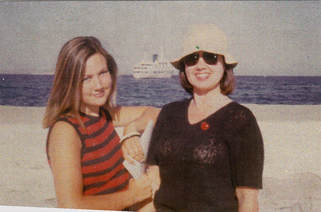
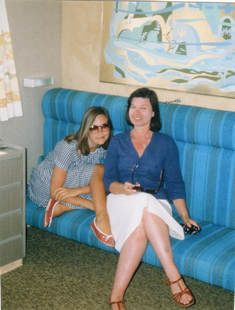
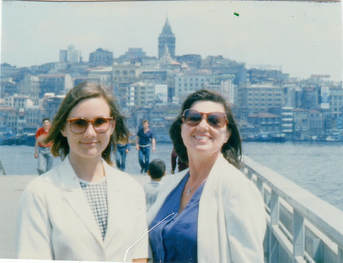
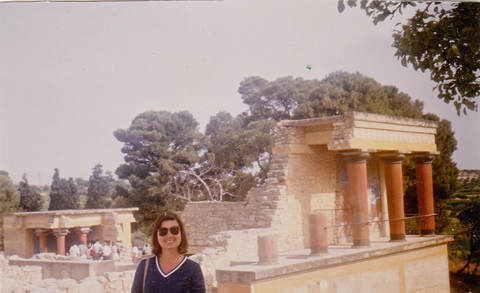
 RSS Feed
RSS Feed